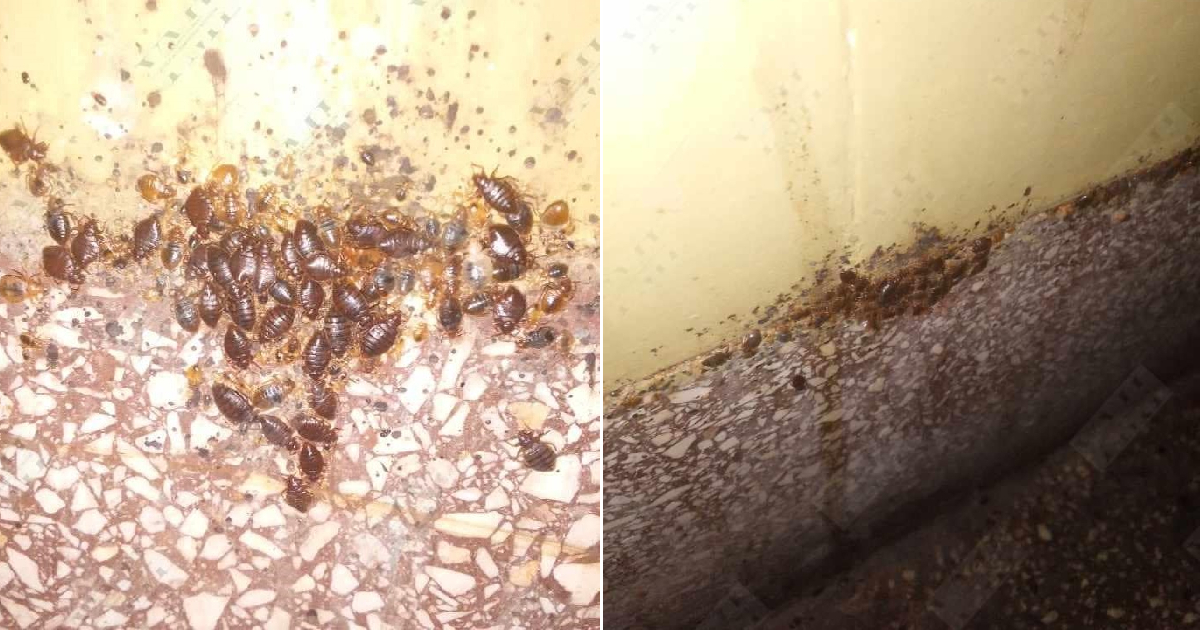The spread of bedbug outbreaks in Artemisa and other provinces in Cuba has escalated from an isolated event to a persistent problem affecting homes, state and private institutions, warehouses, transportation, and public spaces. Despite this, health authorities do not prioritize the situation. Many centers have had to close, suspend activities, repeatedly fumigate, and even dispose of furniture infested by these insects. Numerous residential buildings have experienced resurgences, even after implementing treatments, as acknowledged by the local newspaper, El Artemiseño.
"This is unstoppable," stated a resident who faced the issue for the second time while burning mattresses, a bookcase, and a chair at a dumpsite near the provincial capital's cemetery. The resident maintained a clean and orderly home but blamed a nearby, uncontrolled garbage dump for the infestation.
From the Provincial Health Directorate, Raimundo Verde Miranda, the Director of Hygiene and Epidemiology, downplayed the problem, claiming that the bedbug outbreak is "not of epidemiological interest," as they are not vectors like the Aedes aegypti mosquito, which transmits dengue—a potentially fatal disease. However, he admitted that these insects feed on human or animal blood, hide in darkness, and can easily spread through clothing, personal items, or public transport, infesting new areas without hygiene and cleanliness offering complete protection.
The official acknowledged that "garbage dumps are reliable sources for their habitat and starting points for spreading to other areas." Additionally, he suggested topical skin treatments for bites and recommended seeking medical consultation if infections occur.
Education and Public Response
Marlén Blanco Sánchez, the Deputy Director of Education in the municipality, confirmed the presence of bedbugs in the Ramón Mordoche elementary school and the adjoining teachers' annex. Both institutions are located near a dumpsite with persistent garbage, including infested furniture. Blanco warned that many people exacerbate the spread by retrieving furniture from the dump instead of combating the source. She emphasized that disposing of items is not the solution; they should be incinerated, and residues eliminated in appropriate locations.
Inadequate Institutional Response
Despite the severity of the situation, the institutional response has been insufficient. Only two entities in Artemisa are authorized for fumigation. One is the brigade of the Logistics Business Group of the Ministry of Agriculture (Gelma), consisting of eight members, "authorized by the Ministry of Public Health to use chemical products against insect infestations in state and residential environments," as clarified by Verde. The other is the small private enterprise "Cero Plagas." Both brigades use effective and safe products, the report assured.
Ignacio Martínez Falgueiras, head of the Gelma brigade, stated that they prioritize educational institutions, basic goods warehouses, and homes of vulnerable individuals. Plans are underway to establish new brigades, including one in Candelaria. Meanwhile, residents are grappling with a growing problem that, according to authorities, largely depends on "keeping spaces tidy, clean, cool, ventilated, and washing clothes in water above 140 degrees Fahrenheit if possible," along with a collective will that currently seems insufficient.
Health institutions such as the Saturnino Lora Provincial Hospital and the Gustavo Machín Psychiatric Hospital in Santiago de Cuba, as well as the Doctor Ángel Arturo Aballí Maternal and Child Hospital in Havana, have been reported by citizens as infested with cockroaches and bedbugs, endangering patients' health. According to official explanations, this situation is attributed to Labiofam's lack of raw materials for producing pest extermination products.
In 2024, a bedbug infestation alarmed several residents in a neighborhood of Santiago de Cuba province, with the insects also rampant in a nursing home in Manzanillo, Granma province. On that occasion, the director and doctor of the elderly care facility minimized the situation, arguing that the bites did not pose a significant health risk to patients. Nonetheless, bedbugs, known as "the silent killer," can transmit the *T. cruzi* parasite, which causes Chagas disease. This parasite can remain in the human body for up to 97 days and lead to cardiac, neurological, and digestive issues, potentially resulting in sudden death.
Meanwhile, there is growing public concern and anger over the worsening garbage collection problem in several cities, particularly in Havana, where micro-dumps are proliferating near schools, hospitals, and homes without effective governmental responses. People are forced to live amid flies, other insects, foul odors, and fears of disease.
Understanding the Bedbug Crisis in Cuba
What is causing the bedbug infestation in Artemisa?
The infestation is largely fueled by uncontrolled garbage dumps, which serve as breeding grounds for bedbugs, allowing them to spread into homes and institutions.
How are authorities responding to the bedbug issue?
Authorities have downplayed the issue, with limited fumigation efforts due to a lack of resources and personnel. The response has been criticized as insufficient given the severity of the problem.
Why are bedbugs referred to as "the silent killer"?
Bedbugs are called "the silent killer" because they can transmit the T. cruzi parasite, which causes Chagas disease, leading to serious health conditions like cardiac issues and potentially sudden death.
What measures can residents take to combat bedbug infestations?
Residents are advised to maintain cleanliness, dispose of infested items properly, and wash clothes at high temperatures. Collective community efforts and proper waste management are also crucial.
